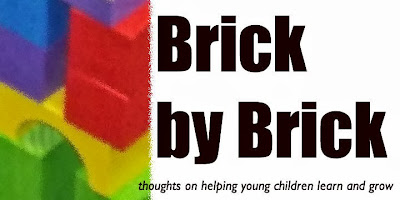2012 has been a year of changes for me. For a few years, I have been thinking about a change. I've been thinking about being in a classroom full-time, teaching young children and working to make a difference.
Well, in July, I got a call and an offer. Things had to be done and done quickly. But in the span of a couple of weeks, I radically changed jobs - and daily began learning in a classroom with 20 6-year-olds.
It's been challenging...and downright hard at times. More than once I've wondered if I was a little crazy. But I've never doubted that I'm in the place I should be.
You get what you wish for...but it's always different that you thought it would be. I know this is something I should have already known. And I did know it. But I'm a dreamer; I guess that's part of my reflective nature. I've learned a few things as I've lived this out in the past four months.
1. The real classroom is messier and grittier than the "ideal." I had a picture of what the classroom would be like and what I would be like as a first grade teacher. But things didn't pan out like I imagined. Kids didn't gather at my feet to read books and play quietly together. Kids push limits. Kids don't want to do the "right thing" all the time. Kids talk when you're talking and do things other than their work. Things don't always run smoothly. And you have fire drills 30 minutes before dismissal. And the educational consultant or principal walks into your classroom when everyone is hyped up from that last moving math activity you just did. Real kids are unpredictable and human.
2. It's harder than I expected but more rewarding than I expected, too. Kids tell me that I'm a great teacher at least once a week, even when I know I'm not. I get hugs daily, sometimes from the kid I never expected would hug me. I wanted to throw a party when one kid grasped that adding 0 gave you the same number you started with. Listening to kids read makes my heart soar every time. Reading that funky first grade writing makes me want to write even more.
3. No matter what you do, some things you are beyond your control. One girl came to my classroom and pushed every button she could. I discerned quickly that she wanted attention...and negative attention was as acceptable as positive attention. We worked through some difficult times and I was beginning to see signs that I was gaining her trust. Her behavior had changed, less acting out to get attention and more focus on learning. And then she moved to another school. I worried about what would happen but knew that I had done all I could while she was in my class. I must release whatever I cannot control.
4. I must keep remembering that I'm new at teaching first graders. I am reflective and I think that makes me a good teacher. But constantly picking apart what I'm doing and obsessing over what I don't know or didn't do isn't helpful. I need to learn and grow but also remember that I've only been a first grade teacher for four months - and my colleagues have been teaching for lots of years. I'll be so much better next year because of my experiences this year.
5. Go with your gut. Maybe not the best phrasing, but I've learned that I know a lot about teaching kids. And that the "right way" may not be the best way for my kids at this moment. Moving and freezing can be a great way to add. Punching while spelling words can help kids remember. Being noisy and messy are okay - as long as it doesn't become chaos. I need to trust my instincts more and the teacher's book less.
John Spencer's post Ten Ways to Deal with a Hard Year is an eloquent expression of lessons I've also learned this year so far. I'm learning so much - and hope the first graders are, too.

